The Summer Olympics are coming! The Games of the XXXIII Olympiad (aka Paris 2024) run from from Friday, July 26 to Sunday, August 11, 2024. So we’re getting hyped for one of our favorite events: Swimming. Several women have made their mark on the swimming world. From Katie Ledecky, to Janet Evans, to Simone Manuel, these women have won medals, broke world records, and made history. How do they stay so fit? Read on for their wellness tips.
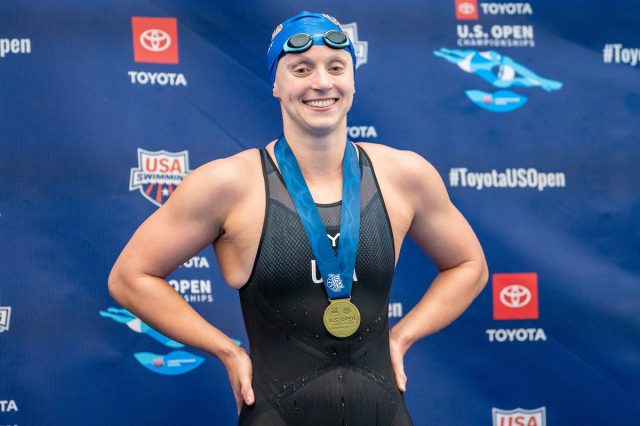
Katie Ledecky has won multiple medals in the Olympics. She shared her training secrets in an interview with E! News. Ledecky opened up about her diet in it. “I keep it pretty consistent. The only day that I don’t train is Sundays, so even right now when I’m taking a little bit of time off, I’m trying to stick to a pretty regular routine. So oatmeal for breakfast, some sort of egg sandwich for lunch, or eggs with toast and then dinner is what varies the most but it is either carbs or some sort of protein: chicken, steak, salmon, something along those lines.”
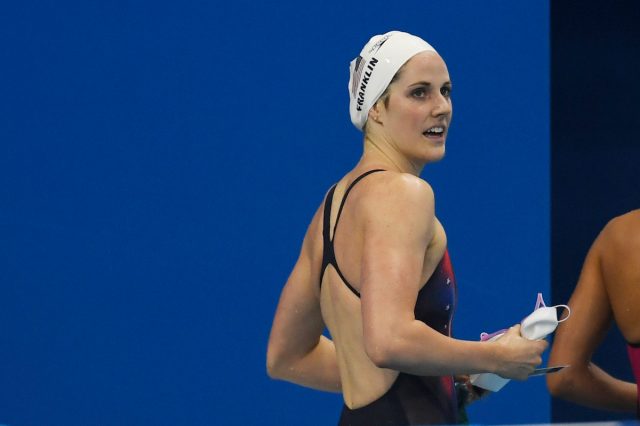

Missy Franklin has won multiple gold medals. She shared her favorite breakfast options with People. “Nutrition is a big part of my training. If I’m not fueling my body with the right things then I’m not going to perform the way I need to. “I’m very proud of myself because I’ve mastered the omelet flip in the pan. I almost always make omelets just so I can flip them—that’s the most exciting part for me.”
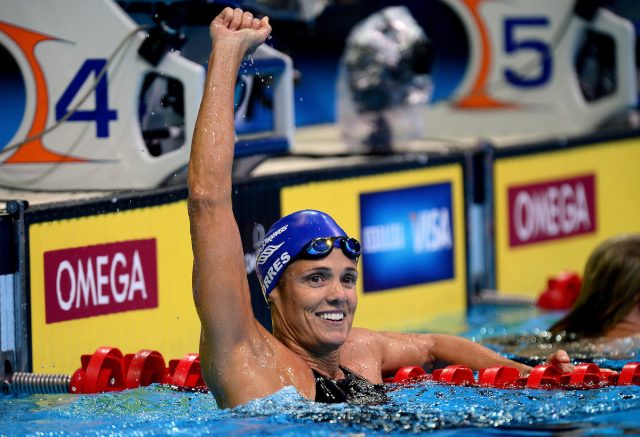

Dara Torres is the oldest swimmer to win an Olympic medal. She opened up about her diet in an interview with Parade. “I had an eating disorder in college and it took me a while to get over it and I really developed a fear of foods. And so my philosophy is to eat healthy, but if you have a craving for something, don’t deprive yourself; just have a little bit of it to help with the craving that you have. My philosophy is that if you are keeping yourself from eating certain things and not having what you want, you’re gonna want it more than you should. So that’s the biggest thing with me with diet. I try to eat my proteins every day and my fruits and vegetables. But I do have a sweet tooth. I can’t deny that.“
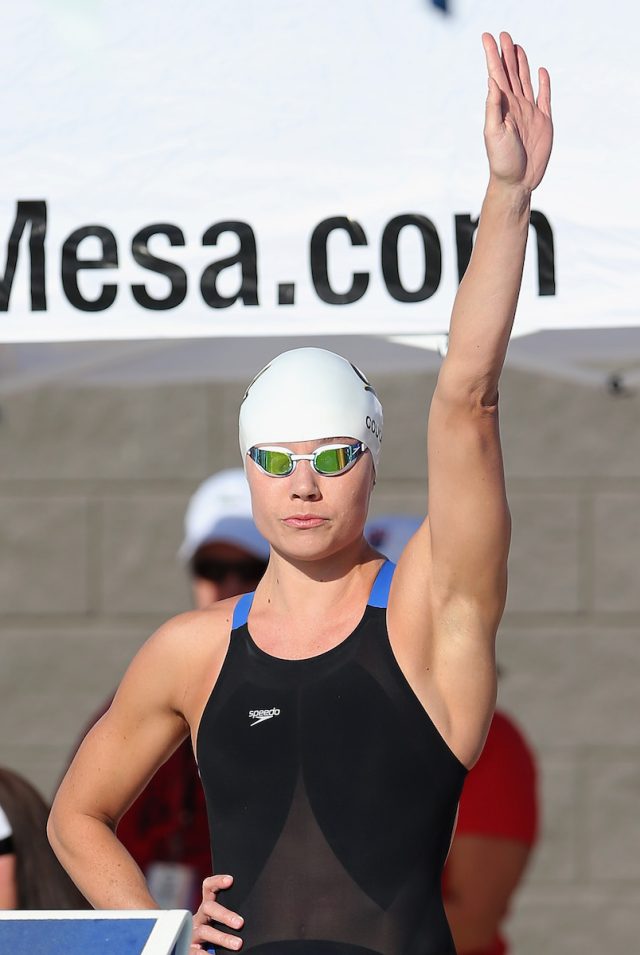

Olympic athlete Natalie Coughlin opened up about the importance of recovery in an interview with Kinetic Fix. “Recovery and rest is becoming much more important as I get older, but on the flip side there are some benefits to getting older: I’m much stronger, and I maintain that strength better than before. But as you age you tend to break down faster, so it’s really important for me to keep my strength and ease back when I swim, focusing more on race relevance.”
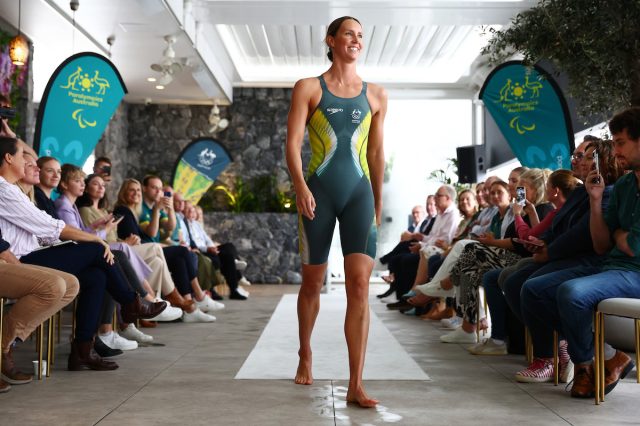

Emma McKeon is an Olympic medalist, known for her butterfly and freestyle strokes. She shared her wellness secrets and her daily routine with Women’s Health. “Depending on what day it is, I’ll also have a physio appointment. They will focus on my shoulders because I use them so much, then just any other little niggly or tight things that need maintenance. So far I’ve been pretty lucky not to have any proper injuries, just little niggly things that will go away after some regular physio treatment.”
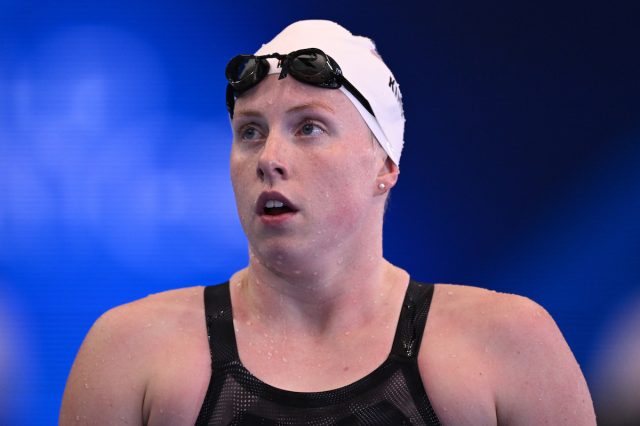

Lilly King is an Olympic athlete. She shared how she prepares for meets in an interview with Swimming World. “It’s a little weird because I am always preparing for the race. I am constantly thinking about the outcome I want to achieve. I also only think about the best-case scenario, which I find not a lot of others do. I really try to only think about the positives.”
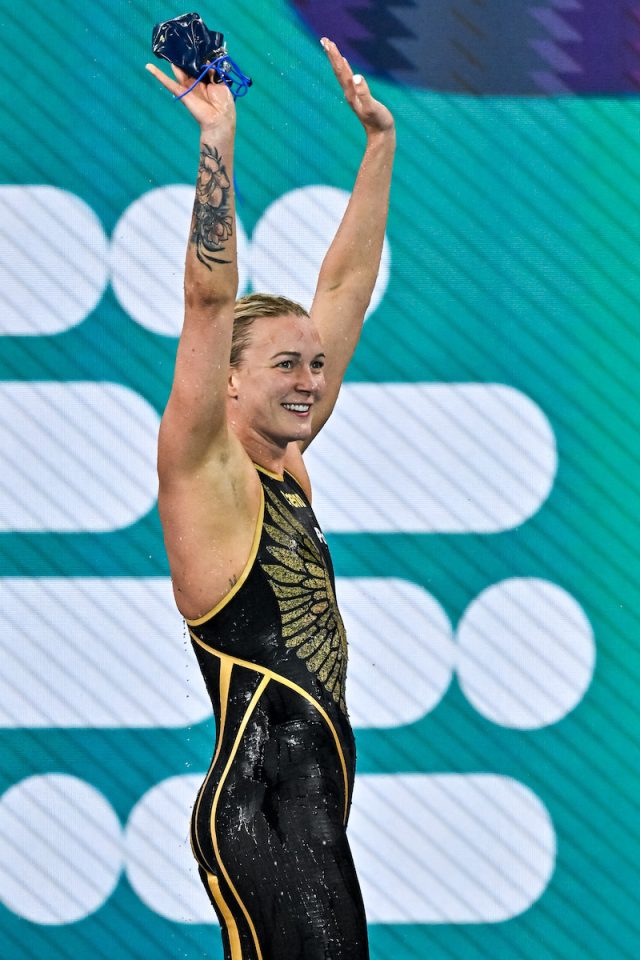

Sarah Sjöström has multiple world records for swimming. She shared her typical diet in an interview with Irmas World. “During my hard training periods I try to make sure I eat enough protein and carbs to recover better. I don’t count calories, I have just learned how much I need. I also try to eat breakfast, lunch, dinner and snacks in between meals at the same time every day. During competitions, I have protein/energy bars and after competitions and trainings protein and carb shakes or bars help me regain my energy.“
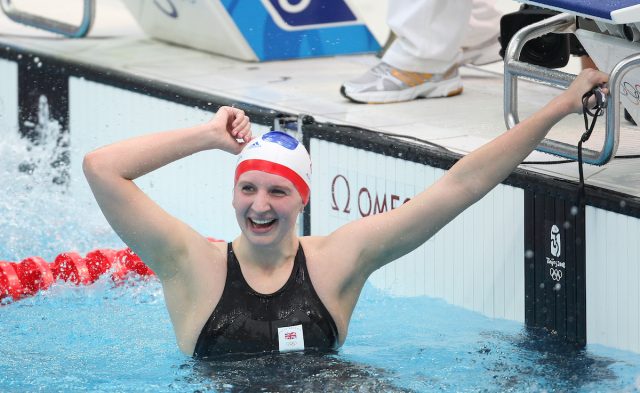

Rebecca Adlington is a gold medalist in the distance freestyle. She revealed to Hello! Magazine that she loves avocado. “For me, I love avocados and stuff like that. Obviously they are high in fat – it is one of those difficult things – but I’m not going to tell you to eat four avocados, and certainly, be careful what you’re eating it with. For me, it’s great to just have a bit of avocado with some eggs or something like that, because it does fill you. I think a lot of things, when you’re eating fruit and vegetables, you’re kind of hungry an hour after, whereas things that last and can help you survive the whole day are obviously better. I love avocado and eggs, simple things.”
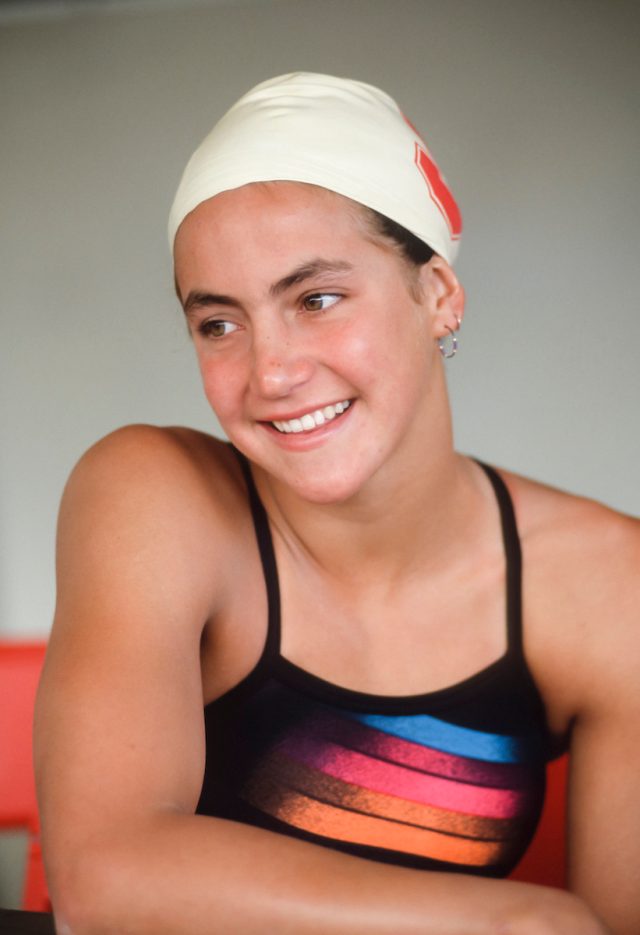

Summer Sanders is a gold medalist and a sports commentator. She shared her diet secrets in an interview with SELF. “My healthiest habit is eating a healthy breakfast every morning. I never miss breakfast. As a busy mom, there will be days when I’m cruisin’ along and I’ll look at the clock and I haven’t eaten lunch. And I’ll run downstairs and I’ll start shovelin’ stuff down the pie hole, and I’ll think, ‘That was no lunch at all.’ But breakfast has sort of turned into the new dinner, where you can sit down with your family and have a conversation. And my kids talk at breakfast. We talk about our dreams, talk about our nights’ sleep, talk about what we wanna do today and be positive.”
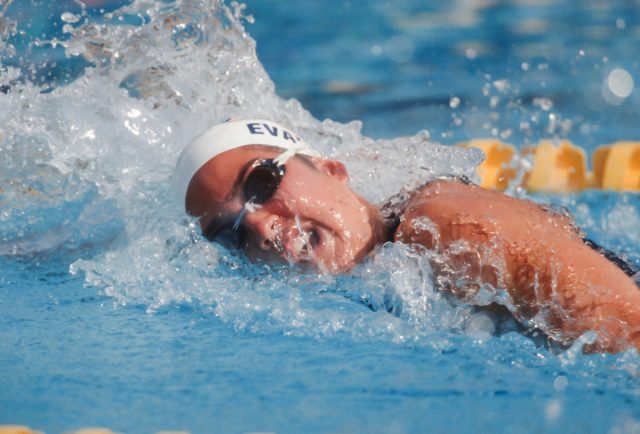

Janet Evans is one of the most successful female swimmers. She opened up about her diet in an interview with Mom.com. “I eat a banana prior to my morning workout. I think protein is very important when you are training as hard, as you’re breaking your muscles down. So I usually have a protein shake or some eggs or something that gives me a little protein after my workout. I also have a scoop of my Metamucil to keep my cholesterol down–I have a history of heart disease in my family. Then, for lunch, I usually have something that’s going to sit well in my stomach because I have to go back to training. So I usually have a turkey sandwich or something of that nature. And dinner, I come home and make something healthy for my kids and husband. Once again, kind of protein-based, but basically trying to get enough fuel to get back up and do it all again the next day.”
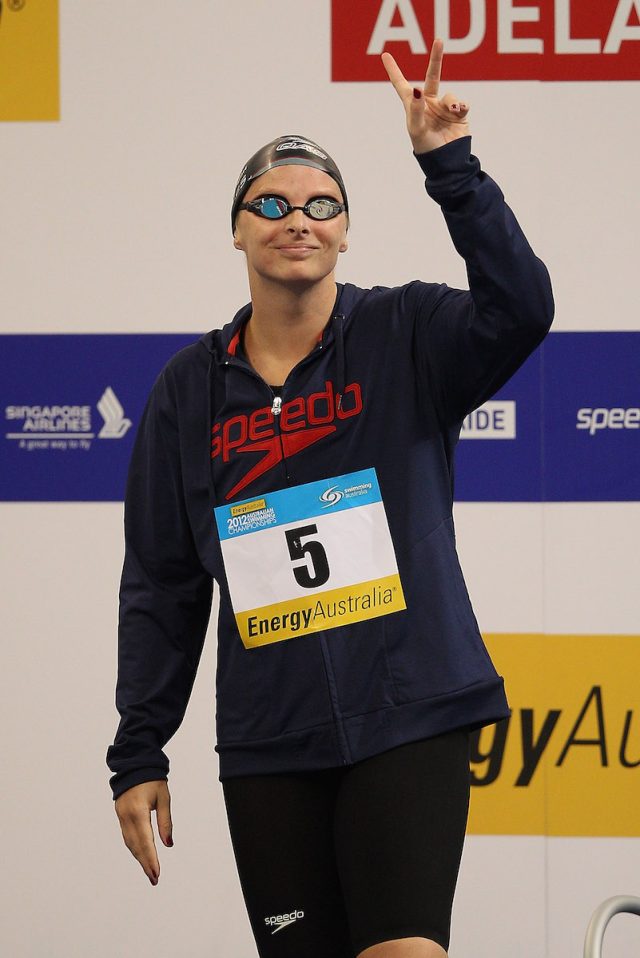

Leisel Jones is a world champion in breaststroke. She shared her morning workout in an interview with Women’s Health. “It’s time for a full-body workout at Perform 360 at Enogerra, Brisbane. It’s an intense fitness session and it really works my whole body – it’s a strength session with some conditioning at the end. Strength and conditioning training is a great combo for improving speed and power and also mobility, mind and stability. I love it.”
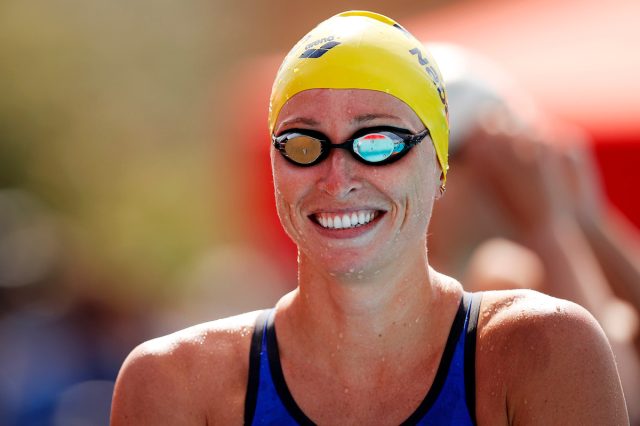

Haley Anderson is an open water swimmer in the Olympics. She tells Cosmopolitan that she likes to weightlift. “My lifting workout started with a 15- to 30-minute dynamic warm-up for mobility and muscle activation. Then I moved into some power-lifting moves (mainly medicine ball throws) and transitioned into a mix of lower and upper body exercises. I worked in some extra exercises with my weight-lifting coach to strengthen my shoulder blades and shoulders, areas that can get torn down when you swim as much as me.”
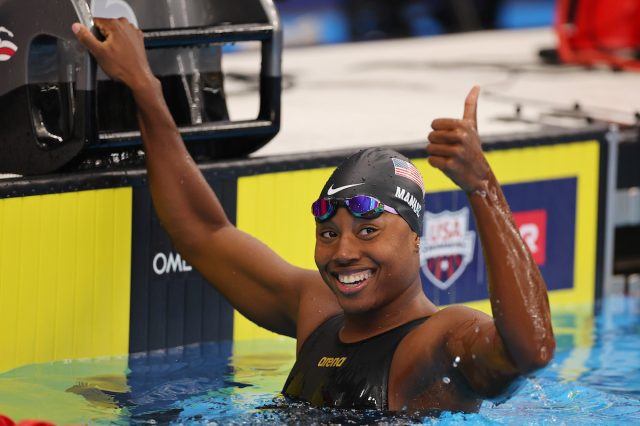

Simone Manuel became the first African-American woman to win gold for an individual event. She revealed that she suffered from overtraining syndrome in 2021. Manuel talked about this to Sports Illustrated. “I think especially as athletes, we sometimes think that taking rest is a sign of weakness, but with the grueling and daunting schedules that we have, it’s really important to listen to your body, but also your mind when you need to take some time for yourself.”
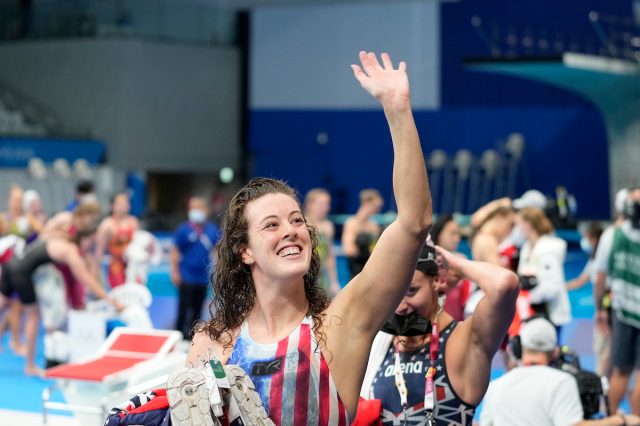

Allison Schmidtt talked about how her diet changes due to her cycle to Orreco. “I didn’t realise how important carbohydrates were and the need to eat more carbohydrates around certain periods of training. So many coaches throughout my career told us that carbs are bad for you and make you fat. I didn’t learn that training the female body is different to training the male body. We have to train differently and eat differently to men, and that knowledge has given me such a big advantage to help understand my body and reach the highest peak.”
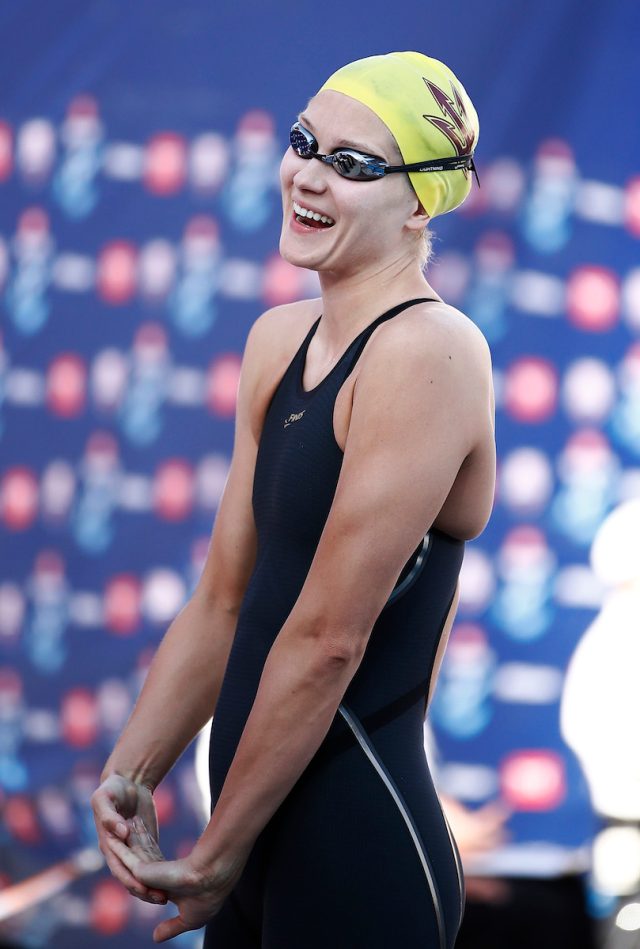

Olympian Olivia Smoliga shares her secrets for building confidence with Jolyn. “Don’t let the fear of failing stop you from doing what you want. Every time I stepped up on the blocks at Olympic Trials, the first time being when I was 17, I was so nervous! And that’s an understatement. At that time, there were no backstroke wedges so you just had to do a start on touchpads that had no gripping on them. So there was a huge chance I could slip. I practiced and practiced to make sure I wouldn’t, and yet I still thought about it as I walked out for the final. But I knew I wanted to be there! I knew I could do something special! No matter what my fears were telling me. And at those trials, I made it to the final of the 100 back. How will you know what you can do, if you never try? No one cares if you fall on your face. They will admire that you even had the courage to even go after your goals in the first place. You shouldn’t care what others think anyway, but let that give you some solace next time you wanna try something out of the ordinary.”
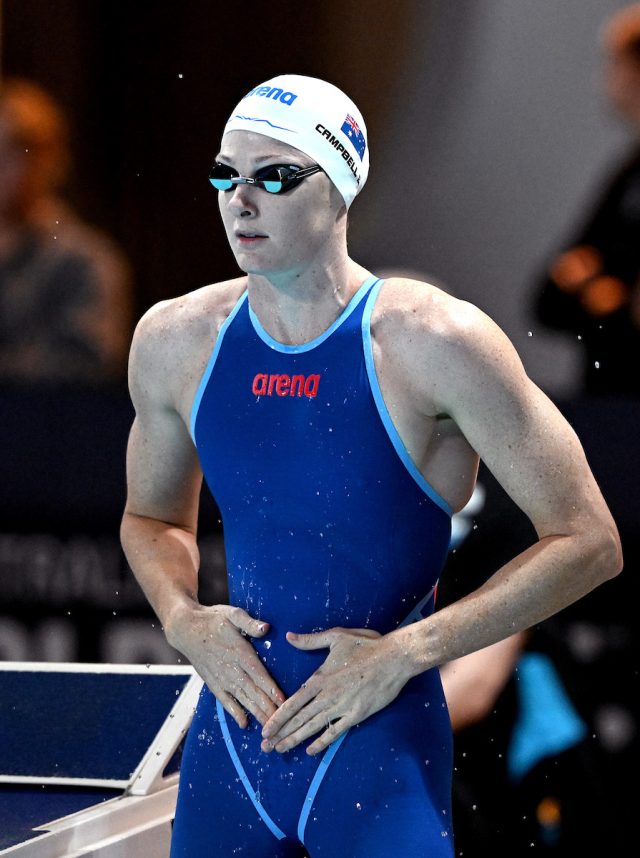

Cate Campbell is a world champion and holds a medal for the Olympic sprint freestyle. She tells Body & Soul that sleep is a big part of her wellness routine. “Having a good sleeping routine is really important for me. I make sure the TV is off at 9pm, then I listen to music while I clean the kitchen and get ready for bed. I try and make my bedtimes as consistent as possible during the week – especially if I have training the next morning.”
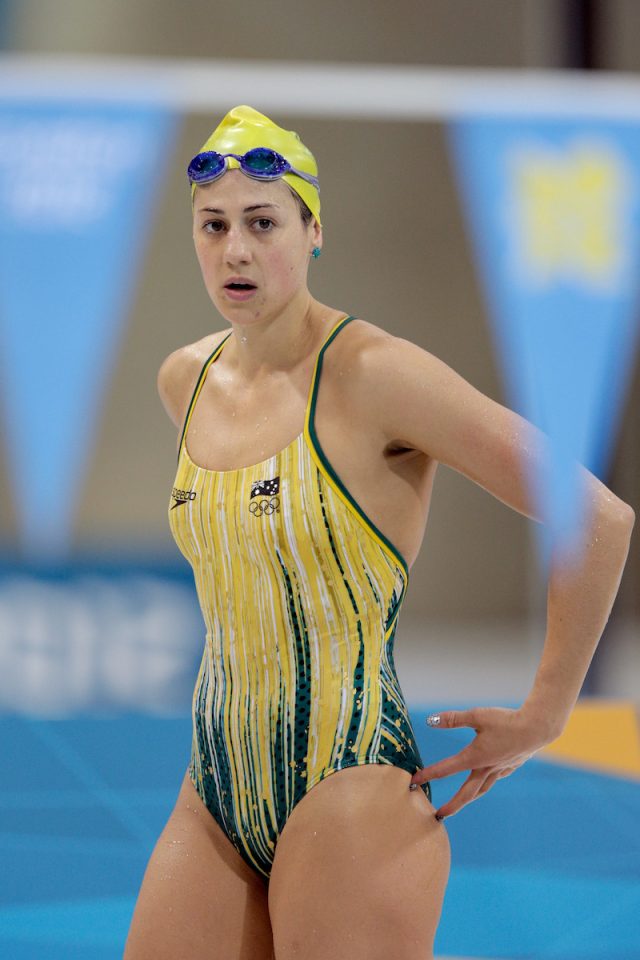

Stephanie Rice won three gold medals at the 2008 Olympics. She shared how she trained for the Olympics with Body & Soul. “When I was training, everything was extreme and the focus was not on looking a certain way – it was on the actual performance element of looking like that, so food was fuel; it wasn’t an enjoyment thing. I needed X amount of calories, or X amount of protein for muscle recovery so it was very science based.”
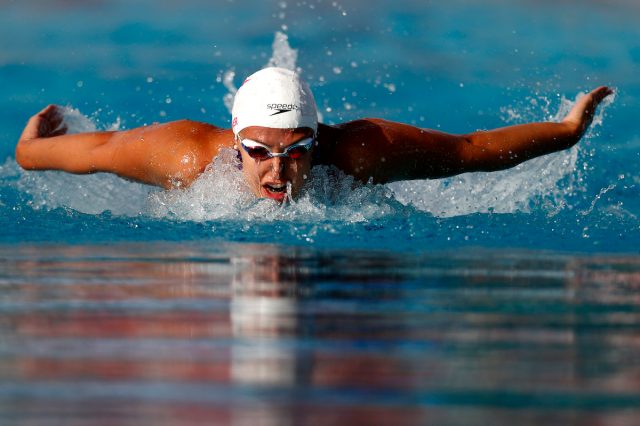

Kathleen Baker is a champion in backstroke. She also has Crohn’s Disease. Baker tells Olympics.com that this has made her appreciate swimming a lot more. “Crohn’s disease has given me an immense love and appreciation for my sport that I feel like you can really only have when you’ve had something taken away from you, or feel like it could be taken away from you. So when I compete, I compete for such a love of what I do and the process to get there, not only just the success or the racing, but truly just a love for my sport.“
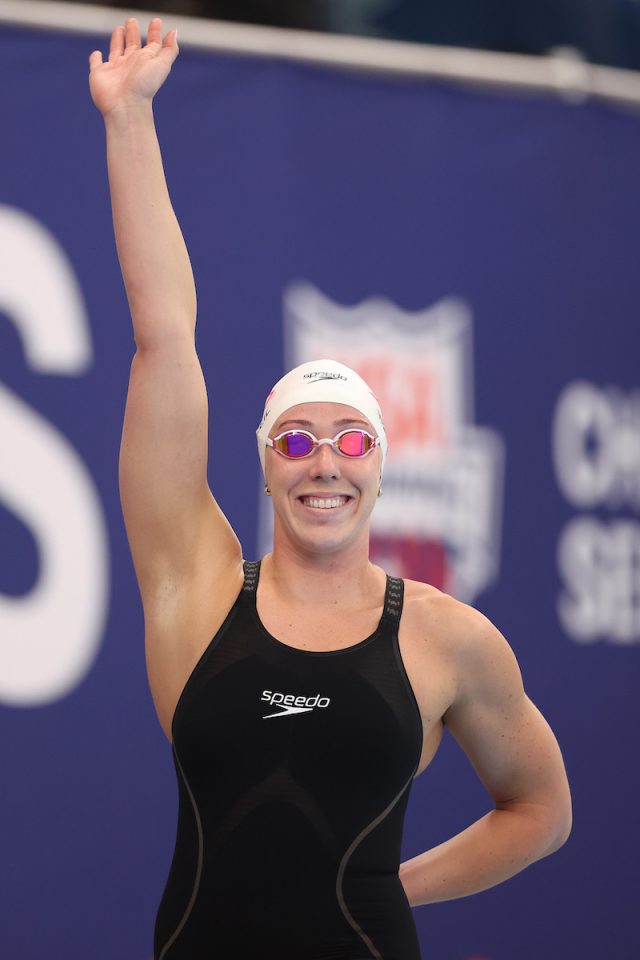

Abbey Weitzeil won silver in the 2021 Olympics. She talked about how she overcomes challenges in an interview on Speedo’s website. “I train and do what I can control, and I tell myself that whenever I’m having a tough time… You’re going to have some good days and some bad days, and sometimes you’ll have bad weeks or months too. As long as you enjoy the ride and love what you do then these challenges are easier to face.”
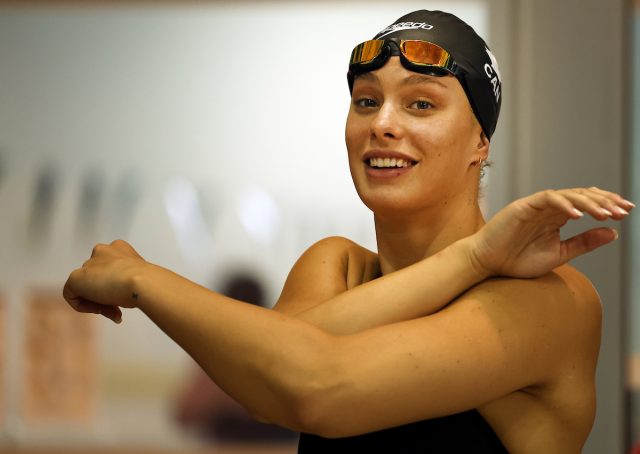

Penny Oleksiak was the youngest Canadian to win at the Olympics. In an interview with Narcity, she revealed how she is recovering from knee surgery. “My focus kind of shifted. Right now I’m strengthening my knee still and still kind of working on that and trying to make sure it’s always healthy. But right now my shoulders are kind of my biggest rehab thing that I’m getting over.”
